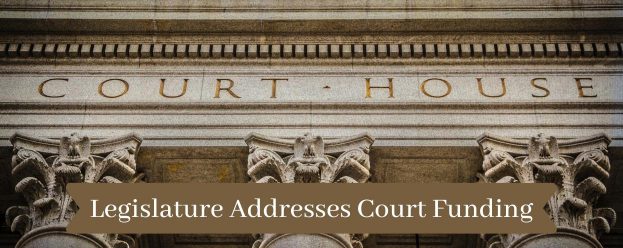9th Jan 2015

Estimated reading time: 3 minutes
Recently, Governor Rick Snyder signed House Bill 5785, which amends MCL 769.1k and addresses court funding issues. Amended MCL 769.1k now provides courts with ample authority to assess fines and costs against certain defendants who plead guilty, nolo contendere, or are found guilty by a court. Evidently, this statute was amended by the Legislature in response to the Supreme Court’s People v Cunningham1 decision.
The Cunningham decision ruled that the pre-amended version of MCL 769.1k provided “courts with the authority to impose only those costs that the Legislature had separately authorized by statute.” This former version of MCL 769.1k specified that courts could impose “any costs in addition to the minimum state cost…” According to Cunningham, MCL 769.1k did not provide courts with authority to assess fines and costs concerning salary and benefits of court personnel, services for court operations, and expenses for maintaining court buildings. Most courts interpreted the “any costs” provision to assess fines and costs against certain defendants even though there was no separate statutory authority to do so.
Amended MCL 769.1k provides relief to courts that were significantly impacted by the Cunningham decision. In pertinent part, House Bill 5785 amends MCL 769.1k to include that a court may impose “any reasonable costs” on criminal defendants who are guilty or plead nolo contendere. MCL 769.1k refers to “reasonable costs” as:
(a) Salaries and benefits for court personnel.
(b) Goods and services necessary for court operations.
(c) Necessary expenses for the operation and maintenance of court buildings and facilities.
In addition, MCL 769.1k was amended to allow trial courts to impose these “reasonable costs” “without separately calculating those costs involved in the particular case.”
Beginning on January 1, 2015, courts will have to make available to the general public and to a defendant information about any fine, cost, or assessment imposed (however, not for a particular case.)
Amended MCL 769.1k provides the courts may impose these costs for 36 months. To that end, the Legislative Analysis suggests that a more permanent solution on court funding could be on the horizon. Because of the complexities of the court system, the Legislative Analysis suggests, that the Legislature agrees that a workable revision could take as much as a decade to accomplish. Some members of the Legislature have proposed that a commission or task force be established to study court funding. Accordingly, amended MCL 769.1k is likely to be a temporary solution while other options are considered.
In the meantime, amended MCL 769.1k provides courts with funding relieve to impose certain “reasonable costs” while more permanent solutions are considered.
Related Links


